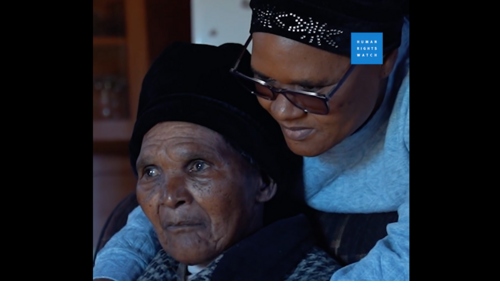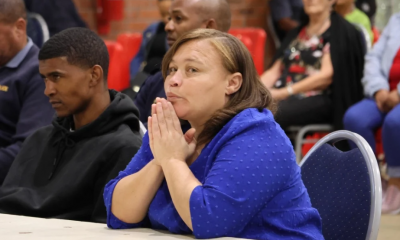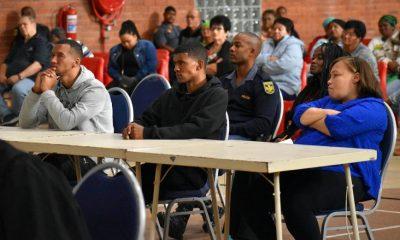News
Insufficient Government Funding for Elderly Care Exposed in HRW Report

A recent report released by Human Rights Watch (HRW) sheds light on the inadequate allocation of government funds for elderly care and support services in South Africa. The report, titled “This Government is Failing Me Too: South Africa Compounds Legacy of Apartheid for Older People,” highlights the pressing issues faced by the elderly population in the country. The study involved interviews with 63 individuals between the ages of 60 and 85 from the Eastern Cape, Gauteng, and the Western Cape regions as reported by the SABC News.
Bridget Sleap, the Senior Researcher of the Rights of Older People at HRW, emphasises that the lack of access to care and support services is not exclusive to South Africa. Across the continent, older people are deprived of essential services that enable them to lead dignified lives. What sets South Africa apart is its robust legislation that guarantees older people the right to utilise these services. However, the government falls short in two critical ways. Firstly, it fails to allocate sufficient funds to cover the cost of care and support services as mandated by the Older Persons Act.
Also Read: President Ruto of Kenya Plans to Prohibit Imported Shoes in 2 Years
Sleap explains that although the law grants older people these rights, inadequate funding prevents many in need from receiving these services. The situation is particularly dire for older individuals requiring care and support services at home. While the Social Assistance Act provides some financial support for home-based care, the amount of R500 per month is woefully insufficient. Notably, this sum falls short of covering a single day of comprehensive care and support at home, based on the National Minimum Wage.
The Older Persons Act encompasses various community and home-based support services, including recreational activities, counselling, education, emergency care, dementia care, social services, and skills building. To provide these services, the government contracts non-profit organisations. However, these organisations are not adequately funded to cover the full costs of service provision. With limited budgets, they can only offer a few of the services outlined in the law. Consequently, older people who seek assistance at community centres often receive just one meal per day and limited recreational or craft activities rather than the comprehensive range of services mandated by law.
Also Read: Junior Miner Discovers Rare Pink Diamond in Middle Orange River
Moreover, non-profit organisations struggle to provide home visits to older people within their communities due to insufficient funding. The government’s funding restrictions often hinder organisations from allocating budgets for staff salaries, including caregivers and drivers. As a result, many older individuals reported that no social workers or caregivers visited their homes. Nosiphiwo Tetana, the manager of the Dimbaza Society for the Aged’s service centre, highlighted that their centre had not received a subsidy from the government since April. Despite an increase of only R50.00 in 2022, Tetana expressed concerns over unfair tariff rates and delayed subsidy payments.
Sylvia Lusiti, a visually impaired 72-year-old residing in Dimbaza, Eastern Cape, voiced her disappointment with the government’s lack of support. Although they were provided with houses, Lusiti expressed concerns about the absence of fencing and security measures. She also pointed out that the social grant they receive is insufficient. Lusiti urged the government to provide monthly food packages to better support their health and overall well-being.
Also Read: South African Rand Strengthens as Investors Gauge Russia’s impact
Nosisi Mayamo, a 64-year-old residing in Dimbaza and caring for eight grandchildren, echoed the sentiment that government grants are inadequate. She emphasised the struggles those responsible for their grandchildren’s upbringing faced after their parents passed away. Mayamo called upon the government to provide timely subsidies to the Dimbaza Society for the Aged service centre. Insufficient subsidy payments have resulted in transportation challenges, as the vehicle used to transport them often lacks fuel. Additionally, she highlighted the need for updated sewing machines at the centre.
The HRW report paints a distressing picture of the insufficient funding and support for elderly care and services in South Africa. The government’s failure to effectively implement existing legislation and provide adequate funding hampers the ability to meet the needs of the elderly population, exacerbating the challenges faced by older people in the country.
Full report below:
Also Read:
Follow us on Google News
Photo: Facebook / @Human Rights Watch






















